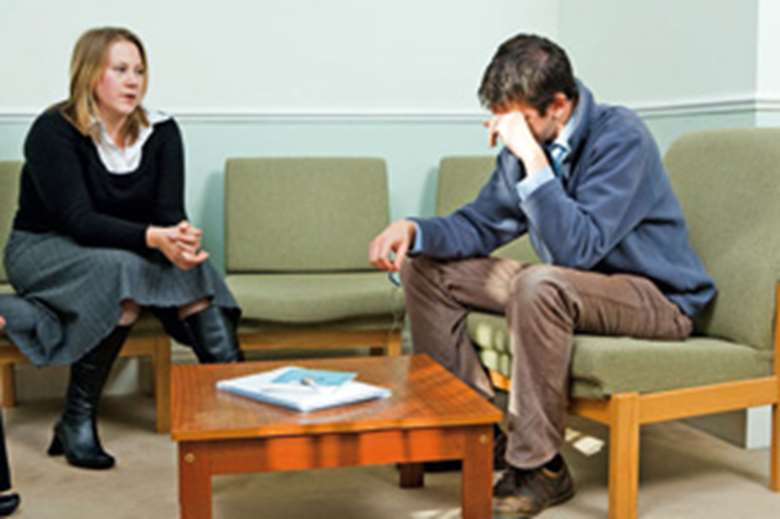Social Work Practice: Families find a way forward through group conferences
Jo Stephenson
Tuesday, February 15, 2011
Family group conferences offer hope when other interventions have failed. Jo Stephenson looks at how they have helped social workers in North Somerset find solutions for children in need.

It was crunch time for the Johnston family.* There were serious concerns about the welfare of their five children, aged one to 13, and social workers were proposing that at least two should be adopted.
A family group conference (FGC) was their last chance to find a solution. "It was critical stuff," says Liz Reilly, an independent co-ordinator employed by the North Somerset FGC Project. "There were 23 people at the meeting who had come from all over the country."
FGCs are designed to involve families in making decisions concerning children - an approach shown to achieve good results and help avoid the costs of legal proceedings and care placements. In this case, the Johnstons devised a plan that was sanctioned in court and put into action.
"Crucially, engagement between the family and local authority improved," says Reilly. "Most of the children returned home and two remained with wider family but with more contact."
The fact that FGCs allow families to take the lead is one reason the model works, says Sean Haresnape, FGC project manager for North Somerset.
It is different to other scenarios like case conferences - where parents and carers are generally outnumbered by professionals. "It's a bit of a role reversal in that you can have 26 members of a family and one social worker," says Haresnape.
North Somerset FGC Project, which is in its seventh year, is funded from the children's social care budget. It was initially based in a specialist service doing intensive work with vulnerable families, but is now part of the council's quality assurance team. The vast majority of referrals come from social workers, although the team has started getting more from other professionals.
A recent evaluation found a quarter of cases involved child protection concerns, about a quarter involved a looked-after child and around half featured a child in need. Domestic violence and drug and alcohol misuse feature as some of the common problems. The project employs 12 independent FGC co-ordinators, who are paid an hourly rate.
Cases are allocated within a few days. Co-ordinators generally start with the person who has parental responsibility to check consent and begin the complex process of agreeing who should be involved.
Conferences, which can last for up to five hours, take place in a neutral venue such as a children's centre. The atmosphere is generally quite difficult at first, explains Haresnape: "You get two sides of a family who haven't spoken to each other for a number of years or you might have four families all with a relationship to a child - they don't know everyone in the room. There's often a very frosty feeling at first."
FGCs begin with an "information stage" where the professional who made the referral will set out their concerns and the meeting might hear from other agencies. The family will also hear about the support available.
Crucially, it is made clear what will happen if nothing changes. The meeting may then hear from the children in the case. "Often that's a turning point and helps focus the direction of the meeting," says Haresnape.
The family are then left alone to come up with a plan to address the key concerns raised. They present their plan to the referrer and other agencies. It is negotiated and finally agreed.
In 95 per cent of cases, families do come up with a plan, says Haresnape. In the minority where this does not happen, FGCs can still help a family work out what they want - even if a final decision is made in court.
The recent evaluation estimated the project has saved up to £570,300 between January 2009 and September 2010 by avoiding legal proceedings and preventing children going into care.
The approach has plenty of benefits for social workers, not least the fact that it gives them instant access to that wider family network, saving them time and effort.
This often leads to a stronger focus on the father and paternal side of the family. The process is helped by the fact that co-ordinators are genuinely independent and can act as an intermediary between the family and social services when relationships have broken down entirely, says Reilly, who is a locum social worker.
"It has taught me things as a practitioner," she says. "It has reminded me to work in partnership with children and families, be upfront with them and translate 'social-worker-speak'.
"At the end of a FGC meeting, you're exhausted but you think 'wow that worked'."
*Name has been changed
KEY POINTS
- In 2008, the Public Law Outline in England and Wales recommended the increased use of family group conferences to reduce the need for care proceedings
- In 2010 The Family Commission, led by the charity 4Children, said all families should have a legal right to a Family Group Conference when concerns were raised about a family or children were at risk
- The Family Rights Group offers a range of publications and research including a guide to setting up a family group conference service www.frg.org.uk




